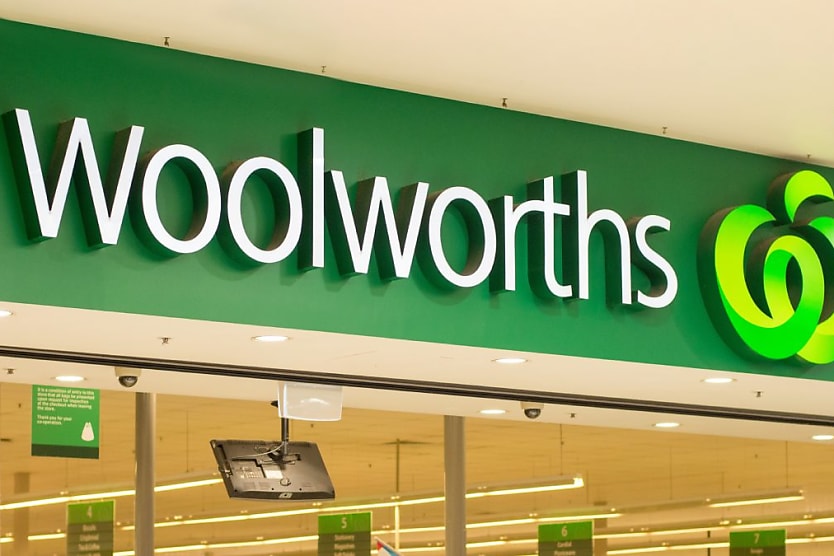
The tidal wave of outrage levelled against Woolworth’s decision not to stock Australia Day merchandise might not have been inevitable. At the core, much of the criticism concerns not the decision itself but the way the company has tried to justify it.
Over the weeks leading up to 26 January, Woolworths staff experienced 50 per cent more violence, said chief executive Brad Banducci. The spike is up from already inflated levels of violence since the COVID-19 pandemic.
“Clearly, we didn’t land our communications as effective as we could have,” Mr Banducci told the 7.30 Report.
Naturally, the decision not to stock the merchandise was always going to generate some backlash. However, it seems the outrage has less to do with the actual decision and more to do with the way the company handled the affair.
According to ABC News, neither Aldi nor Kmart stocked the merchandise this year, while the latter hasn’t stocked it for two years. The issue was not just the company taking a stance – but it was the attempt to play both sides.
Judging by the words of Mr Banducci, the message the company wanted to convey was that it was proud to be Australian, regardless of how it might feel about Australia Day. How did it get so obscured?
Conflicting messaging
On 11 January, ABC News reported that a Woolworths spokesperson said the decision not to stock the merchandise was made in response to a lack of demand. However, the spokesperson implied that the decision was not merely commercial.
“At the same time, there’s been broader discussion about 26 January and what it means to different parts of the community,” they said.
In a letter sent to staff last week, Mr Banducci seemed to downplay the significance of these political considerations. Instead, he said the decision was simply commercial. What’s more, in opposition to the above-mentioned sentiments of the unnamed spokesperson, Mr Banducci denied claims that the company was trying to discourage Australia Day celebrations.
“We aren’t trying to ‘cancel’ celebrating the Australia Day long weekend. We are a proud Australian and New Zealand retailer and, like so many others across Australia, I am proud to be an Australian citizen and deeply grateful for the opportunities that Australia has offered me and my family,” he said.
Later he added: “Our commercial decision to not stock specific Australia Day general merchandise was made on the basis of declining sales.”
Mr Banducci’s comments on the conflicting political beliefs surrounding 26 January were sparse, explaining that “not every Australian marks Australia Day in the same way, and it’s important to us that all customers and team feel safe and a sense of belonging when they are in our stores”.
Whether or not this counts as Mr Banducci saying that broader cultural factors played a role in the decision, his earlier mention in the same letter that it was a “commercial decision” at least weakens the claim.
Shaky justifications
Later in the letter, Mr Banducci justified the company’s decision to display banners for other cultural events like Diwali and Lunar New Year and not Australia Day on the basis that the first two are “often centred around connection over food, and as a business, we are committed to supporting events and occasions like this for our customers and team”.
This generated no small amount of criticism. Consider this tweet, which reads: “This bloke is so out of touch with Aussies he fails to recognise that we celebrate our national day with barbecues, family picnics and parties. His hollow argument is a joke and the hole he is digging for himself and Woolworths is getting deeper.”
Regardless of how true or untrue Mr Banducci’s claim here is, it seems to have fallen on deaf ears, with several commentators believing the company was relying on shaky reasoning to justify an unpopular decision.
Woolworths’ Corporate Reconciliation Plan emphasises a need to move from “safe actions to brave actions”. When asked whether the Australia Day controversy will encourage the company to instead stick with the “safe” actions, Mr Banducci answered: “No, it will make us much more thoughtful in the way we communicate and deliver messages.”
The company has learned (the hard way) that when wading into political waters, it’s best to be clear and firm in your reasoning. Making a political decision is inherently divisive – don’t make it worse by trying to appeal to all after the fact.
RELATED TERMS
According to the Australian Human Rights Commission, discrimination occurs when one individual or group of people is regarded less favourably than another because of their origins or certain personality traits. When a regulation or policy is unfairly applied to everyone yet disadvantages some persons due to a shared personal trait, that is also discrimination.
Nick Wilson
Nick Wilson is a journalist with HR Leader. With a background in environmental law and communications consultancy, Nick has a passion for language and fact-driven storytelling.










